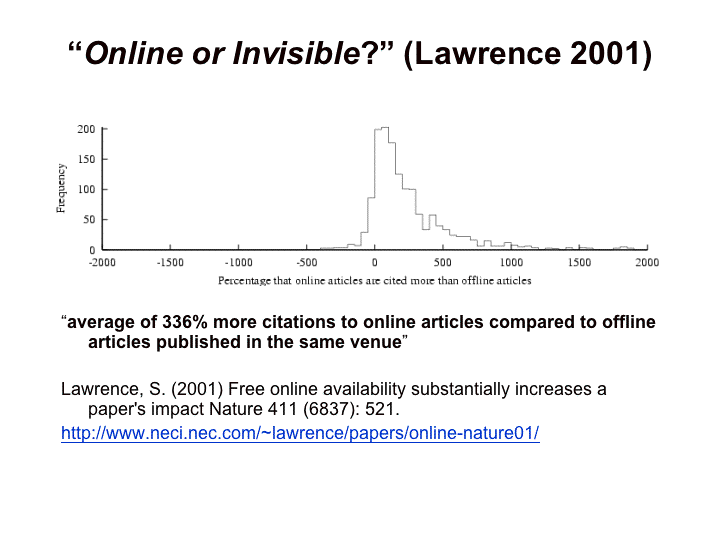The Chronicle of Higher Education has a wonderfully encouraging article about academics taking on the tyranny of the academic publishing industry. The bottom line of the issue is the argument that publicly funded research should by rights be made publicly available.
It’s by Josh Fischman, A few excerpts:
A protest against Elsevier, the world’s largest scientific journal publisher, is rapidly gaining momentum since it began as an irate blog post at the end of January. By Tuesday evening, about 2,400 scholars had put their names to an online pledge not to publish or do any editorial work for the company’s journals, including refereeing papers.
. . . . .
Protesters . . . say Elsevier is emblematic of an abusive publishing industry. “The government pays me and other scientists to produce work, and we give it away to private entities,” says Brett S. Abrahams, an assistant professor of genetics at the Albert Einstein College of Medicine. “Then they charge us to read it.” Mr. Abrahams signed the pledge on Tuesday after reading about it on Facebook.
Those views highlight a split that could spell serious trouble for journal publishers, and for researchers. Price complaints are not new, but some observers say this is the first time that the suppliers of journal content—the scientists—are upset enough to cut the supply line. But, if publishers are correct, those scientists could cut themselves off from valuable research tools.
According to the boycotters, Elsevier, which publishes over 2,000 journals including the prestigious Cell and The Lancet, is abusing academic researchers in three areas. First there are the prices. Then the company bundles subscriptions to lesser journals together with valuable ones, forcing libraries to spend money to buy things they don’t want in order to get a few things they do want. And, most recently, Elsevier has supported a proposed federal law, the Research Works Act (HR 3699), that could prevent agencies like the National Institutes of Health from making all articles written by grant recipients freely available.
. . . .
[T]he protest has also reached junior scholars like Mr. Abrahams of Albert Einstein, who has yet to gain tenure.
“I have three papers I’m hoping to submit in the next 12 weeks. One was destined for Cell, and another for Neuron,” also published by Elsevier, he said. “It would have been a real feather in my cap to publish there. But I won’t, based on this week’s discussions.” His work, focused on identifying genes related to autism, will go other places. “There are other good journals. And, long term, I’d like my library to be able to use its limited resources to better ends” than high journal prices, he said.
That could signal real problems for Elsevier, says Kevin Smith, director of scholarly communications at Duke University Libraries. “Librarians have long complained about prices and bundling journals together, and nothing has changed,” he says. “Now it’s not just the customers who are complaining. It’s the suppliers.”
Academic librarians may buy journals, but it’s the scientists who produce and submit articles that make them worth buying, he says. “If they are upset, there is a chance they may change the system.”
. . . .
Nor does the Elsevier infrastructure impress younger scholars like Mr. Abrahams. “It could disappear tomorrow, and I’d never notice that it’s gone,” he said.
There is also the related question of long-term preservation. Libraries have traditionally been the repositories for this purpose but online journal publishers have robbed libraries of that ability and have forced the academic world to trust private companies whose bottom line is the profit margin with the preservation of our research heritage.





You must be logged in to post a comment.